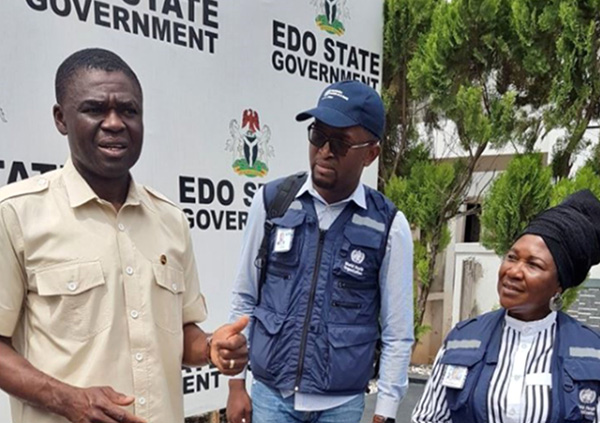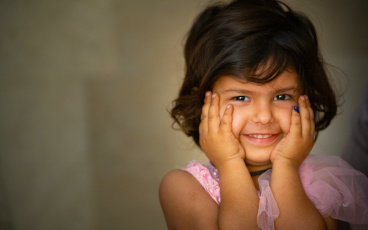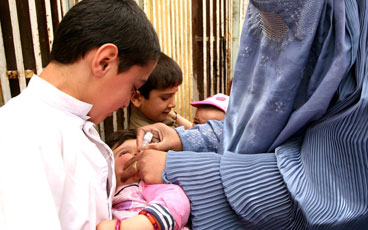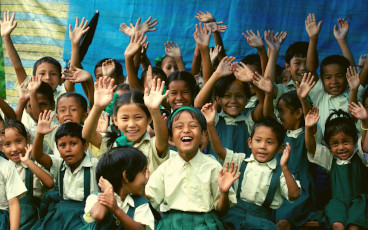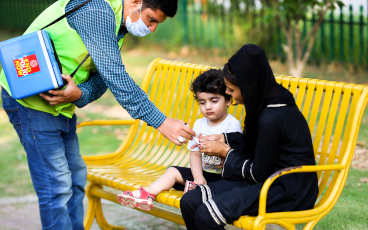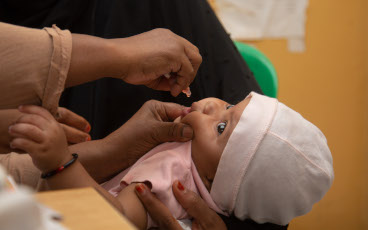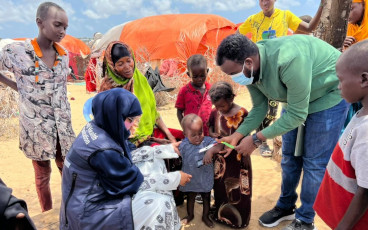Polio personnel support Lassa fever response in Nigeria
In Nigeria, experts from the frontline of polio eradication are helping to end other disease outbreaks.
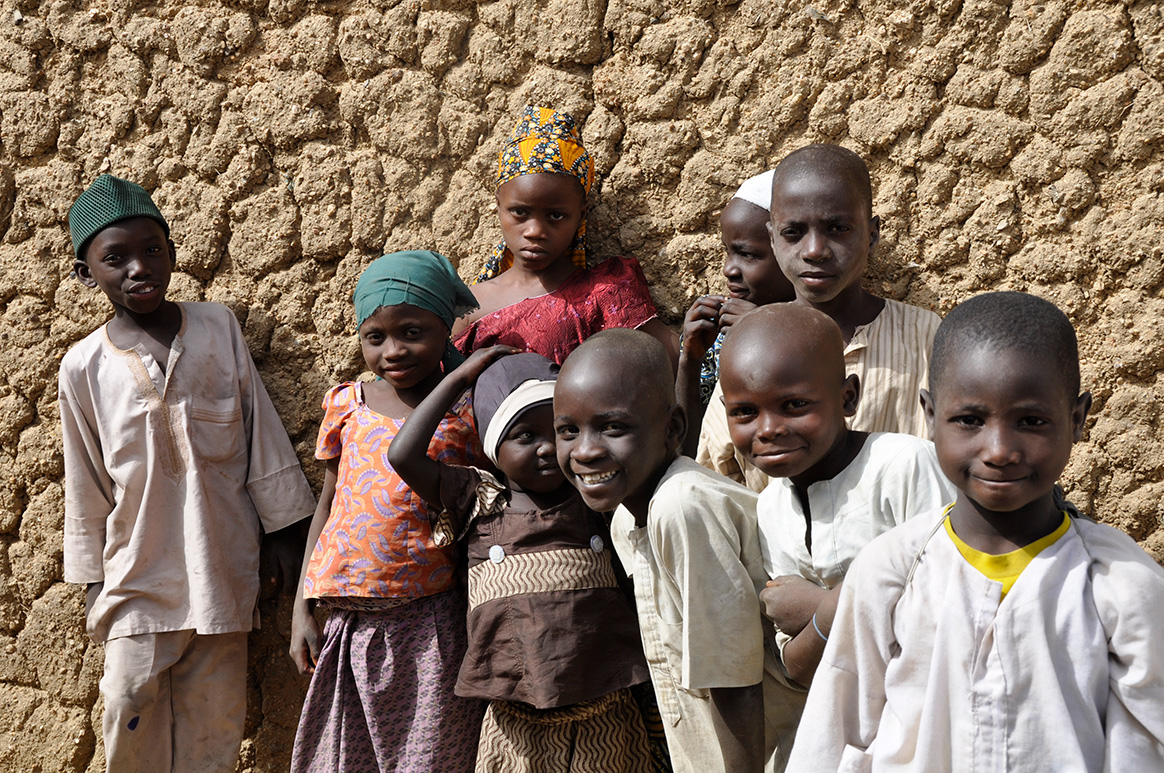
“When I received the confirmation of the first case of Lassa fever…nothing prepared me for the tasks ahead other than my work in polio eradication” – Mrs Faith Ireye, WHO State Coordinator in Edo state.
In the first two months of 2018, there were 110 deaths in Nigeria from suspected Lassa fever. Outbreak response, led by the Nigerian government and WHO, is focused on detecting every case, and tracing the virus wherever it is hiding.
Bolstering this effort are individuals with experience of guarding against a different disease – polio.
Ms Ireye, who has worked with the Global Polio Eradication Initiative for over ten years, is currently helping to coordinate the Lassa fever outbreak response in Edo State, one of the hardest hit by the outbreak.
“My experiences in polio eradication activities allowed me to immediately swing into action. So, when the [Lassa fever] outbreak was confirmed, I realized the need to use my expertise to serve communities at risk,” she says.
Part of her job is to help coordinate surveillance, specifically ensuring that everyone who has come into contact with someone with Lassa fever is found, and tested for the virus.
Her work is critical to help prevent further fever cases. Deputy Governor of Edo State, His Excellency Philip Shaibu said, “WHO…is one of the pillars that have helped lead surveillance in Edo state… In this particular outbreak, WHO was the first to draw attention to the fact that we need to galvanize resources from all partners, from other parts of the country, to ensure that things get done.”
The polio infrastructure
When outbreaks of other diseases happen, the knowledge and experience of polio personnel like Ms Ireye can make a significant difference to outbreak response. For example, polio workers were essential to containing the Ebola virus outbreak in 2014. For the Lassa fever response, 271 polio workers are involved in active case search, 235 in contact tracing, and 320 in community sensitization activities across the 18 at-risk states.
“The polio infrastructure was originally designed towards achieving the polio eradication goals,” said Dr Wondimagegnehu Alemu, WHO Country Representative to Nigeria. “Now polio infrastructure has expanded its support to broader disease surveillance strengthening, outbreak response and basic health care services including immunization.”
The benefits of experienced personnel
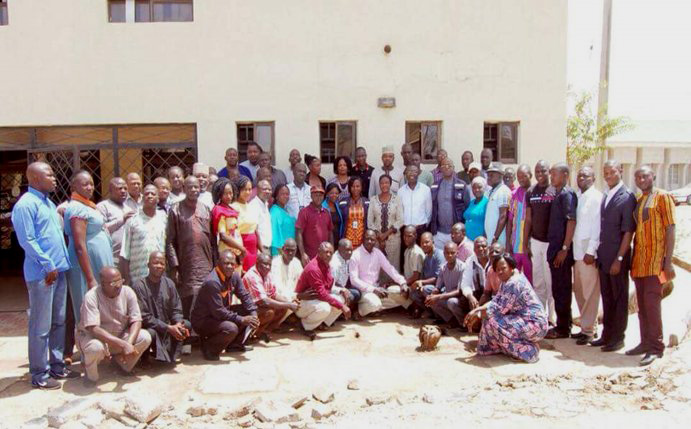
Other activities carried out by polio workers include data collation and analysis, and case reporting.
“The polio teams on ground in the states were crucial for mounting the initial response to the Lassa fever outbreak, and have continued to be WHO’s frontline technical support to the NCDC, States Ministry of Health and local government area teams,” Dr Emmanuel Musa, WHO Incident Manager for Lassa fever Management Team in Nigeria observed.
A legacy for posterity
Investments by donors and partners have gone far beyond polio eradication. Reflecting the positive impact that polio infrastructure and knowledge has had on other health priorities such as Lassa fever, WHO and other partners are currently supporting the development of a national transition plan. This will ensure that the investments that have brought the world to the brink of eradication are made available to support other national public health efforts, long after polio has been defeated.
“We must carefully consider how we transition many of the polio workers and the polio infrastructure to help with managing other health needs,” Dr Alemu said. “Future funding and partnerships will be a key part of this work.”
For now, experienced polio personnel continue their work to end the Lassa fever outbreak. Thanks to them, and the support of governments, partners and donors, we are ending polio, and are also helping to strengthen other health interventions.
Support for immunization to the Federal Government of Nigeria through the World Health Organization is made possible by funding from the Bill & Melinda Gates Foundation (BMGF), the United Kingdom, the European Union (EU), Gavi, Global Affairs Canada (GAC), the Government of Germany, the Japan International Cooperation Agency (JICA), the Korea Foundation for International Healthcare (KOFIH), the Measles and Rubella Initiative (M&RI) through the United Nations Foundation (UNF), Rotary International, the United States Agency for International Development (USAID), the United States Centers for Disease Control and Prevention (CDC) and the World Bank.
